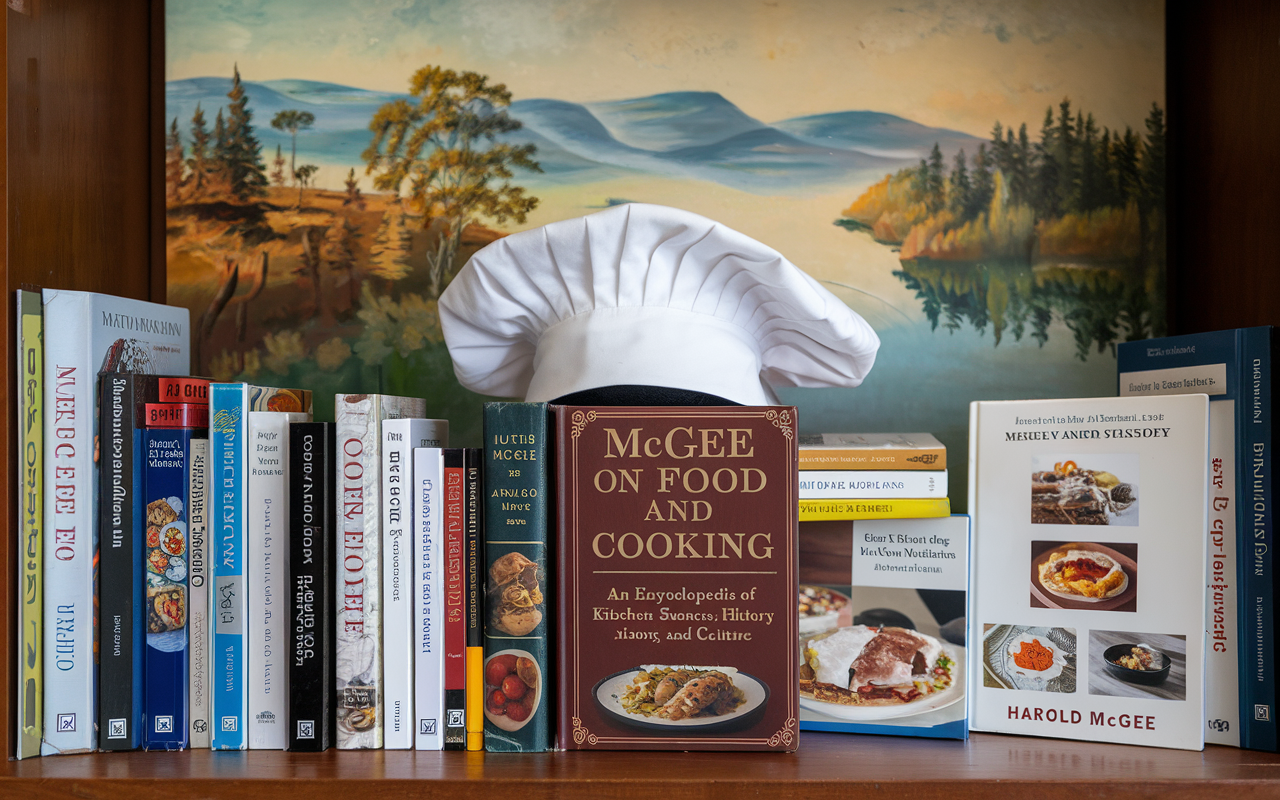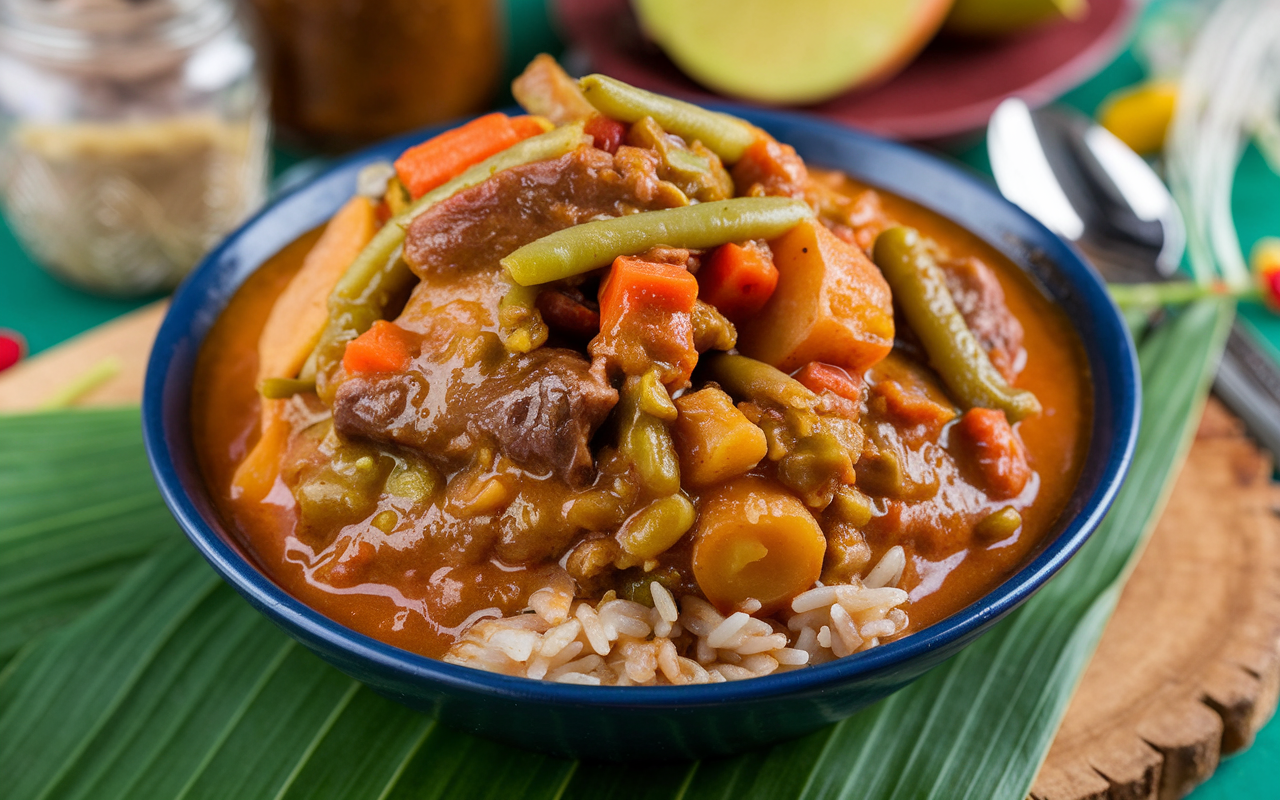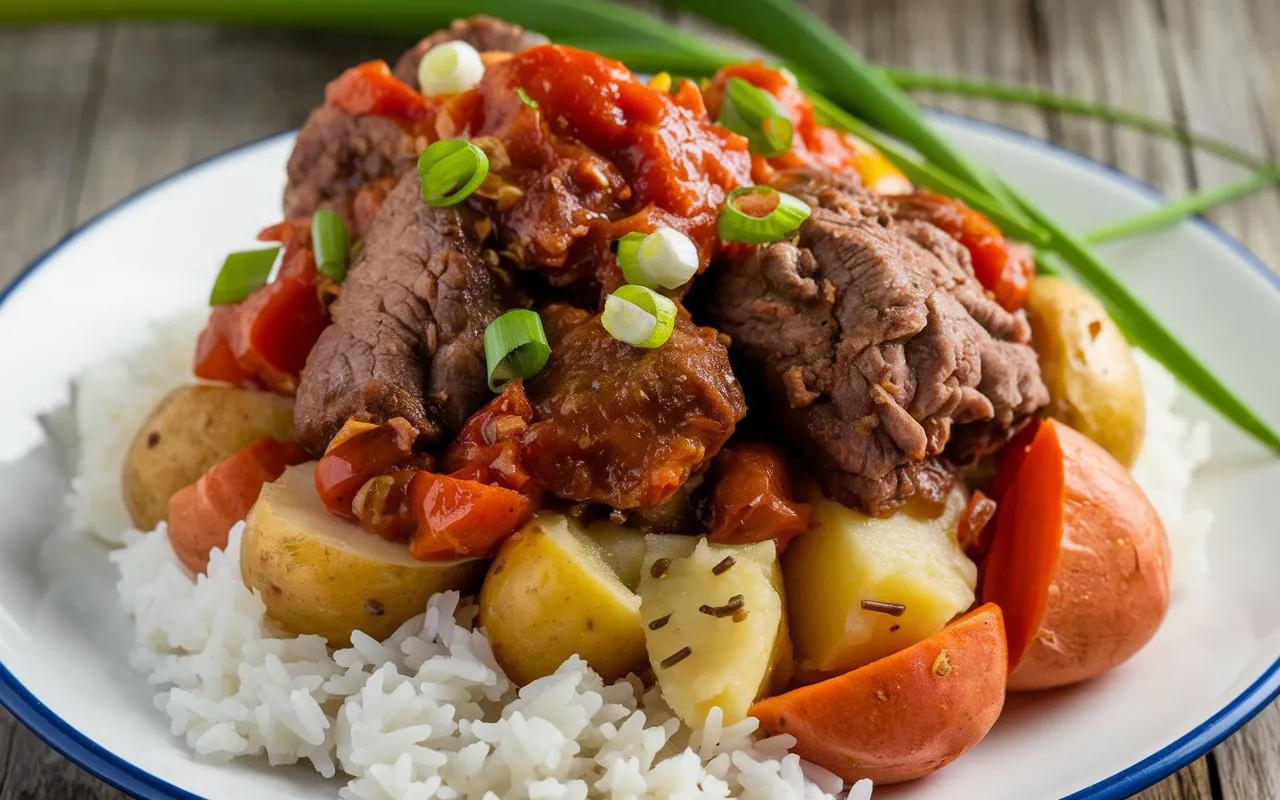McGee on Food and Cooking is a wealth of culinary knowledge in addition to being a cookbook. This book, written by Harold McGee and first published by Scribner in the United States in 1984, revolutionized how we understand food.
It was revised in 2004 for a second edition and published in Britain by Hodder & Stoughton under the title McGee on Food and: An Encyclopedia of Kitchen Science, History, and Culture.
This article will dive deep into how McGee’s work has impacted the culinary world, including insights from famous chefs like Alton Brown, Daniel Boulud, and Heston Blumenthal. McGee’s work continues to be relevant for foodies, cooks, and professional chefs by focusing on scientific understanding, cooking techniques, and food preparation.
The Origins of McGee on Food
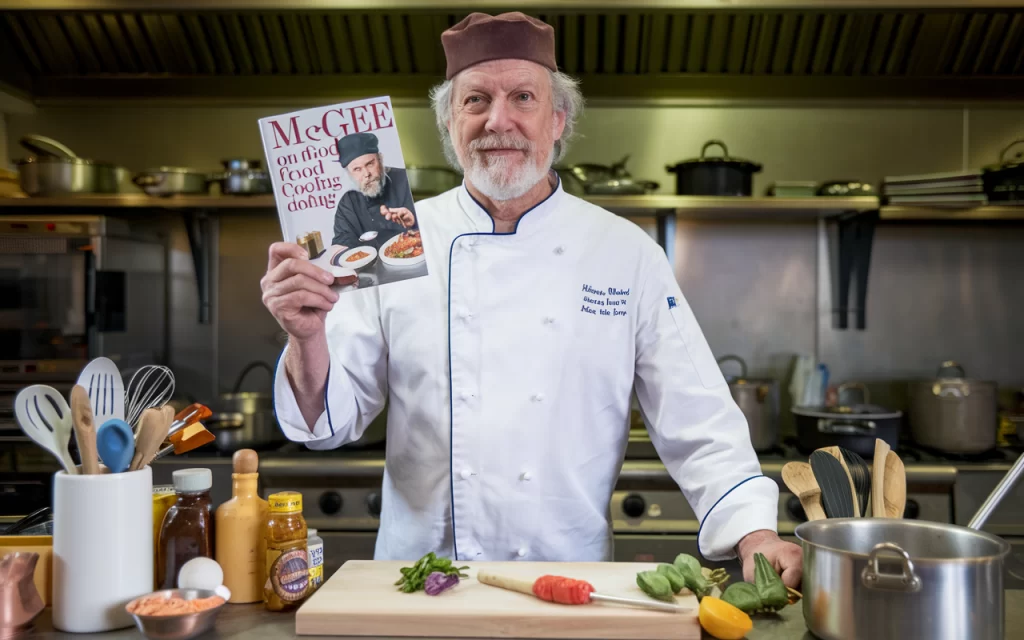
Harold McGee’s groundbreaking book was first released in 1984, bringing a scientific lens to the kitchen. This work laid the foundation for food science in the modern era, published by Scribner in the United States and later by Hodder & Stoughton in Britain. 2004, the book was revised for a second edition, expanding its reach and impact.
A Comprehensive Encyclopedia of Kitchen Science
The book McGee on Food is structured like an encyclopedia, detailing food’s science, history, and culture. From explaining the molecular characteristics of food to outlining the reasons behind standard cooking techniques, it provides a holistic view of the kitchen.
For instance, McGee explains why pasta should be cooked in abundant water, bringing in scientific reasoning that enhances everyday cooking.
Endorsements from Renowned Chefs
Famous culinary figures such as Alton Brown, Daniel Boulud, and Heston Blumenthal have praised McGee’s work. Alton Brown referred to the book as the “Rosetta stone of the culinary world,” while Daniel Boulud called it a “must for every cook with an inquiring mind.”
Heston Blumenthal went as far as to say that it significantly impacted his cooking career. These endorsements highlight the significance of “McGee on Food and Cooking” within the culinary community.
How McGee’s Work Revolutionized Cooking Techniques
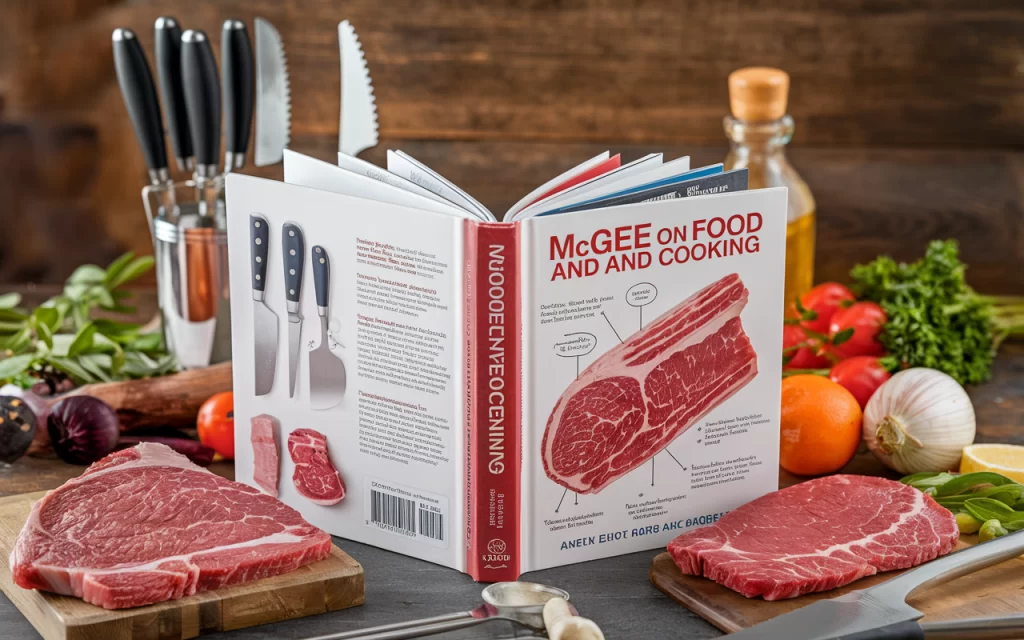
McGee’s work focuses not only on recipes but also on the science behind cooking techniques. Whether baking, fermenting, or boiling, McGee explains the molecular changes that occur during each method.
His explanation of why pasta should be cooked in abundant water and how Fish or Meat Jelly was made by Taillevent in 1375 showcases his attention to historical recipes and modern methods.
Also Read: Food Web for the Desert: How Creatures Thrive Against All Odds
Breaking Down Ingredients and Foodstuffs
One of the book’s critical sections is McGee’s breakdown of ingredients, which is crucial for home cooks and professionals. He delves into the molecular characteristics of common foodstuffs, such as the role of proteins in dough and dairy.
This insight into ingredients helps cooks better understand how to optimize flavors and textures, whether baking bread or preparing sauces.
The Role of Flavor in Cooking
In McGee’s book, flavors take center stage. He doesn’t just talk about taste; he explains the molecular characteristics that produce flavors.
McGee dives deep into how flavors interact in dishes, from the tangy punch of fermented foods to the delicate aromas of undyed butter. His detailed explanations of food molecules and charts and graphs help readers grasp the complex science behind cooking.
A Historical and Cultural Journey Through Food
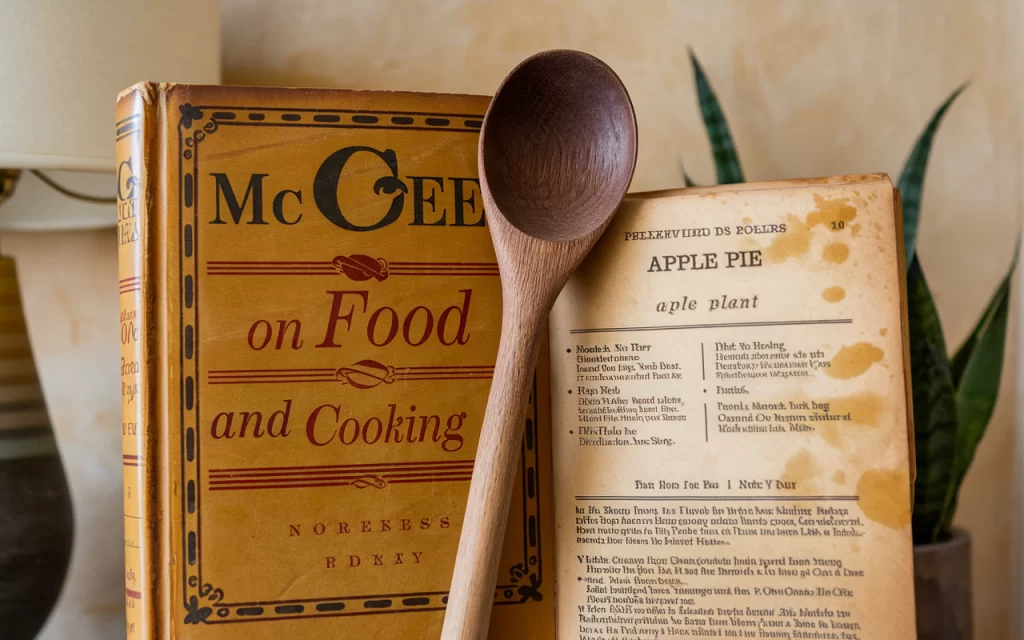
McGee also takes readers on a journey through the history and culture of food. The book connects modern cooking to ancient traditions with quotes from historical figures like Brillat-Savarin and Plutarch.
McGee ties history and science together seamlessly, whether it’s understanding how cheese was made in the past or exploring the cultural significance of staple foods like bread and pasta.
Practical Applications for Today’s Cooks
While “McGee on Food and Cooking” is a scientific text, it’s also a practical guide. McGee offers advice on real-life kitchen dilemmas, from food safety to meal preparation. His insights into cooking processes, such as the best techniques for achieving optimal flavors in sauces or ensuring food safety when working with meats, empower home cooks and professionals with invaluable knowledge.
Why McGee on Food and Remains Relevant
Despite being first published in 1984, McGee’s book remains a cornerstone of culinary science today. The second edition, revised in 2004, ensures it remains relevant in a rapidly changing culinary world. Its comprehensive approach to food science and its practical advice make it an essential read for anyone serious about cooking.
The Book’s Impact on Modern Chefs and Cooking Schools
The book has become a staple in culinary schools and among professionals, inspiring a new generation of chefs. Its influence can be seen in how chefs approach food science in modern kitchens. McGee’s work has deepened the scientific knowledge of today’s chefs, from understanding the role of lactose-digesting enzymes in dairy to optimizing protein in today’s meats.
Closing Thoughts
McGee on Food and Cooking is more than just a book—it’s a gateway to understanding the science behind food. With endorsements from renowned chefs like Alton Brown, Daniel Boulud, and Heston Blumenthal, the book’s profound impact on the culinary world is undeniable.
Whether you’re a home cook, a professional chef, or a curious food lover, this encyclopedia of kitchen science provides invaluable insights into the preparation and enjoyment of food. From molecular characteristics to historical recipes, McGee’s work continues to shape how we cook and eat, making it a must-read for anyone passionate about food.
FAQs:
On Food and Cooking” explores the science and history behind food preparation, revealing how different techniques impact flavor, texture, and nutrition.
By mastering key cooking techniques, you can enhance the taste, appearance, and nutritional value of your dishes, making your meals more enjoyable.
food science helps you cook with precision, improve flavors, and prevent common kitchen mistakes by knowing how ingredients react.

